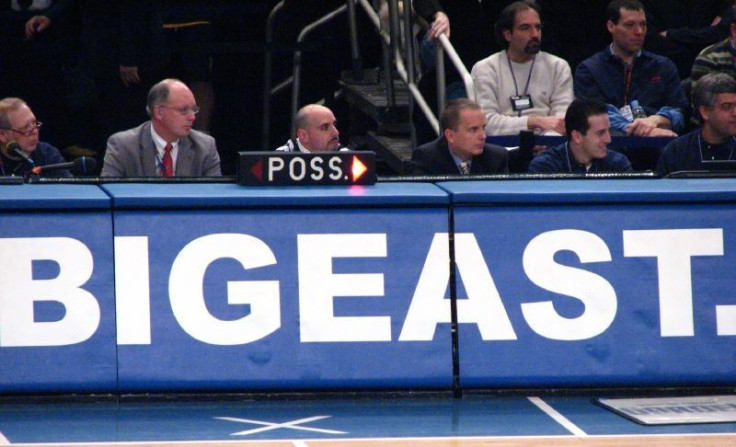West Virginia's Big East Lawsuit Could be Difficult to Prove

West Virginia University filed a lawsuit in the state of West Virginia on Monday to allow it to join the Big 12 conference in 2012 and avoid a Big East imposed 27-month waiting period.
The lawsuit cited a denigration of the Big East through commissioner John Marinatto's mistakes as a reason for the school to not have to stay for the 27-month waiting period.
West Virginia also cited Pittsburgh, Syracuse, and TCU all leaving the conference, as well as Connecticut threatening to do the same, as reasoning to leave the conference when offered an invitation to join the Big 12.
As the Big East, in less than two months, had denigrated into a non-major football conference whose continued existence is in serious jeopardy, WVU had no choice but to accept the Big XII's offer, the lawsuit says.
West Virginia claims in the lawsuit that Cincinnati, Connecticut, Louisville, and Rutgers had been in contact with the ACC, Big 10, Big 12, and SEC about leaving the Big East to join one of those conferences. Marinatto's inability to keep schools from leaving to join other conferences and others from actively looking to join other conferences was a major issue for West Virginia.
The Big East and its commissioner failed to take proactive measures to maintain, let alone enhance, the level of competition for the Big East football schools, the lawsuit claims. The commissioner did nothing to protect the football playing schools and in fact took measures to further protect and advance the interests of the non-football playing schools.
Gabriel Feldman, associate professor of law and director of sports law at Tulane University, told the IBTimes that it could be difficult to prove Marinatto was the blame for conference realignment.
It's going to be a difficult argument for the school to make, Feldman, who hadn't reviewed West Virginia's lawsuit, told the IBTimes. I would think that it's difficult to put the blame of conference realignment on one particular conference.
Additionally, as implied above, West Virginia cited increased power by the non-football schools as a reason to depart the Big East. West Virginia said the voting disparity between the football and non-football schools resulted in the Big East no longer being a viable and competitive football conference.
West Virginia claims that the school recently submitted an offer to Marinatto to be released immediately from the Big East following a cash payment. The school believed that after the Big East accepted a payment of $2.5 million, it approved of its proposal to leave the conference without waiting 27 months.
Whether that works or not, Feldman believes that a settlement is the most likely outcome for this scenario.
I think you might see a negotiated settlement, Feldman said. It could be an increased exit fee. Conferences don't want lame duck schools and could depend on who they get to replace West Virginia.
It could be difficult to prove all of the allegations in the lawsuit, but West Virginia did make a smart move in filing the lawsuit in West Virginia. By filing the lawsuit first, it will be difficult for the Big East to move the case to its headquarters in Providence or some other more attractive location, according to Feldman.
Tough to see (Big East) getting it moved, he said. Certainly by having it in West Virginia it gives them a home field advantage. It might be difficult to move it.
Pittsburgh and Syracuse are also forced to wait a 27-month wait period before joining the ACC, but have not filed any lawsuit against the conference and haven't indicated any intention to do so. Marinatto has previously stated the Big East has all intention to keep any school leaving the conference to the full 27-month wait period.
Want to contact this writer? You can email John Talty at j.talty@ibtimes.com and follow him on Twitter at @jtalty.
© Copyright IBTimes 2024. All rights reserved.











